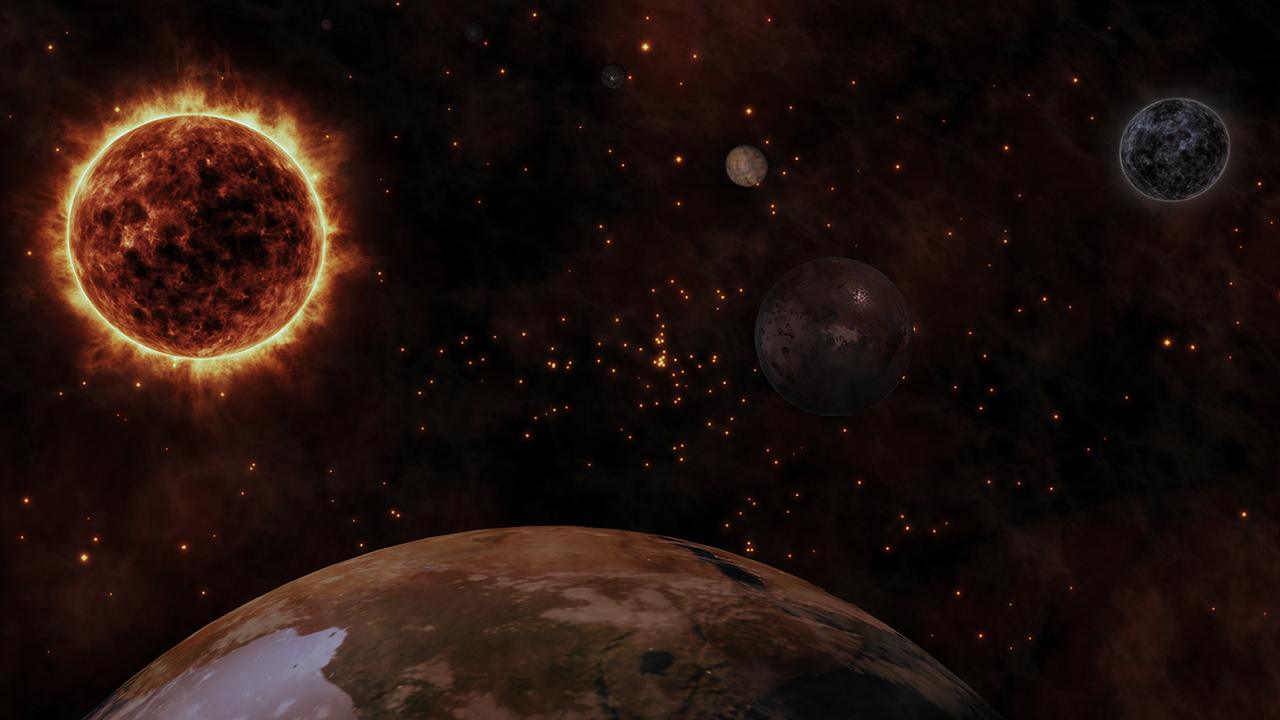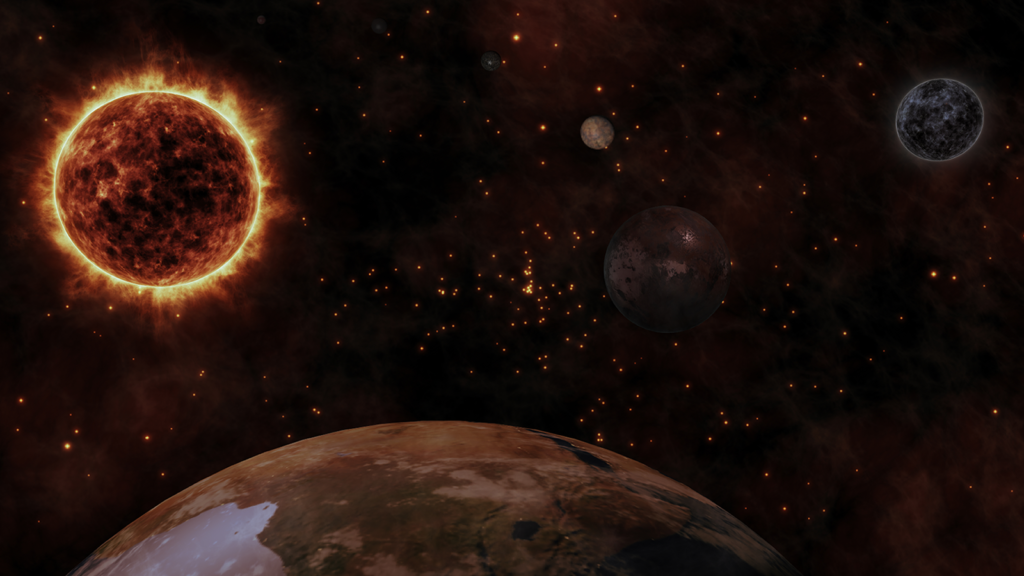
Our solar system has been around for 4.6 billion years. While that sounds like a long time, it’s just a blip in the 13.8 billion-year story of the universe. And one day, the solar system will cease to exist.
But when will the solar system end? And how will it die out?
The answers to those questions depend on how we define the death of the solar system.
The solar system consists of eight planets, several dwarf planets, hundreds of moons, and billions of asteroids, comets and meteoroids. The exact boundaries of the solar system are subject to debate, but there are three main candidates: the Kuiper Belt, a region of icy objects beyond Neptune; the heliopause, where the sun’s magnetic field ends; and the Oort cloud, a theoretical icy cloud lying beyond both the Kuiper Belt and the heliosphere. And, of course, at the center of it all, the sun is keeping it all together with its immense gravity.
Like all stars, the sun will eventually die. Right now, it creates heat and light by transforming hydrogen into helium in its core through a process called nuclear fusion. The sun will continue to burn hydrogen for approximately another 5 billion years, said Fred Adams, a theoretical astrophysicist at the University of Michigan. But once that hydrogen fuel runs out, the sun will become more and more unstable. Its core will collapse, its surface will expand, and it will transform into a cool, bloated red giant that will engulf Mercury and then Venus.
While our planet might be at the border of the red giant’s surface, Adams said, chances are, it will get sucked into the red giant, too. By this point, though, humans will have been long gone. Mars will likely survive the red giant, and the outer planets are all safely outside of the red giant’s reach. The Oort cloud will also be destabilized, Stern said, and the heliosphere will shrink down.
Related: When will the universe die?
About a billion years later, the sun will shrink to the size of Earth and transform into a white dwarf — a dim, extremely dense core of its former self. The solar system will become a freezing, desolate place.
“From a habitability standpoint, that’s kind of the end of the solar system,” Alan Stern, a planetary scientist and principal investigator of NASA’s New Horizons mission, told Live Science.
Although the sun’s death marks the end of the solar system as we know it, it doesn’t necessarily mean its total demise. “A strict, nerdy answer is that the solar system will never end due to the sun’s evolution” or the death of the sun, Stern said. Even when the sun is a burnt out cinder, he said, many objects — including giant planets like Jupiter — will continue to orbit it.
Even further into the future, Adams said, the likelihood of rare events increases. Without the sun’s gravitational force, the solar system will become increasingly chaotic as the gravitational balance of the solar system shifts. The risk of collisions, passing stars or supernovas coming too close to the solar system and then tearing apart its celestial bodies and space rocks will also be magnified.
“We’re not just waiting until the universe is twice as old. We’re waiting till it’s a billion times older, a trillion times older, and a quadrillion times older,” he explained. “If you wait, those enormous time scales and rare events start to add up. It’s like, it’s rare for you to win the lottery, but if you play a billion times, your chances will go up.”
Even if the solar system is spared a catastrophic collision, it won’t last forever. Some scientists also think the protons that make up our universe will decay. The phenomenon has never been observed, but theoretical experiments have placed the proton’s lifetime past 1034 years, and that number might be pushed back even further as experiments into their longevity keep running.
Solar system quiz: How well do you know our cosmic neighborhood?
